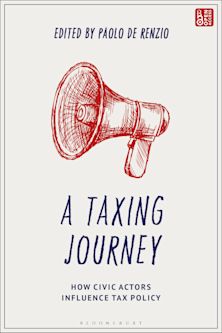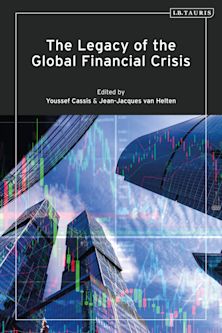The Political Economy of International Financial Crisis
Interest Groups, Ideologies, and Institutions
The Political Economy of International Financial Crisis
Interest Groups, Ideologies, and Institutions
For information on how we process your data, read our Privacy Policy
Description
The world financial crisis of 1997-99 was the most important international economic event since the oil shocks of the 1970s and the associated debt crisis of the 1980s. What were its political causes and consequences? In particular, how did interest group coalitions and political institutions affect pre-crisis economic policies and post-crisis responses? This book focuses on how policymaking coalitions are formed and how political institutions mediate the pressure of rival coalitions. This approach is applied to 13 countries drawn from the main crisis-affected regions of the world economy-East Asia, Southeast Asia, Latin America and Eastern Europe.
Table of Contents
Chapter 2 Explaining Pre-Crisis Policies and Post-Crisis Responses: Coalitions and Institutions in East Asia, Latin America, and Eastern Europe
Chapter 3 The Persistent Liberalizing Trend in Foreign Economic Policies: The Role of Dispersed Interest Groups, Policy Legacies, and Ideologies
Chapter 4 The World Financial Crisis: Is There a Way Out? Are the IMF Prescriptions Right?
Part 5 Comparative Case Studies
Part 6 1. Southeast Asia
Chapter 7 Thailand: Episodic Reform, Regulatory Incapacity, and Financial Crisis
Chapter 8 Malaysia: Ethnic Cleavages and Controlled Liberalization
Chapter 9 Indonesia: Cronyism, Indecisiveness, and Economic and Political Meltdown
Part 10 2. East Asia
Chapter 11 Japan: Prosperity, Dominant Party System, and Delayed Liberalization
Chapter 12 South Korea: Democratization, Financial Crisis, and the Decline of the Developmental State
Chapter 13 Taiwan: Sustained State Autonomy and a Step Back from Liberalization
Part 14 3. Latin America
Chapter 15 Mexico: Crises and the Domestic Politics of Sustained Liberalization
Chapter 16 Brazil: Political Institutions and Delayed Reaction to Financial Crisis
Chapter 17 Argentina: The Political Economy of Stabilization and Structural Reform
Part 18 4. Central and Eastern Europe
Chapter 19 Poland, Hungary and the Czech Republic: National Identity and Liberalizing Consensus
Chapter 20 Russia: Entrenched Post-Communist Elites Ride Out the Crisis
Chapter 21 Bibliography
Chapter 22 Appendix: Economic Indicators
Product details
| Published | 15 Jul 2002 |
|---|---|
| Format | Ebook (Epub & Mobi) |
| Edition | 1st |
| Extent | 312 |
| ISBN | 9780585392912 |
| Imprint | Rowman & Littlefield Publishers |
| Publisher | Bloomsbury Publishing |



























